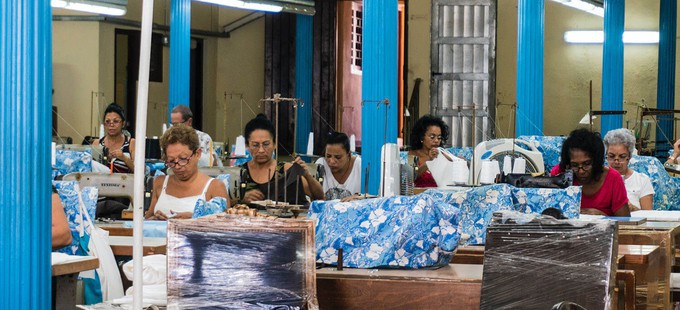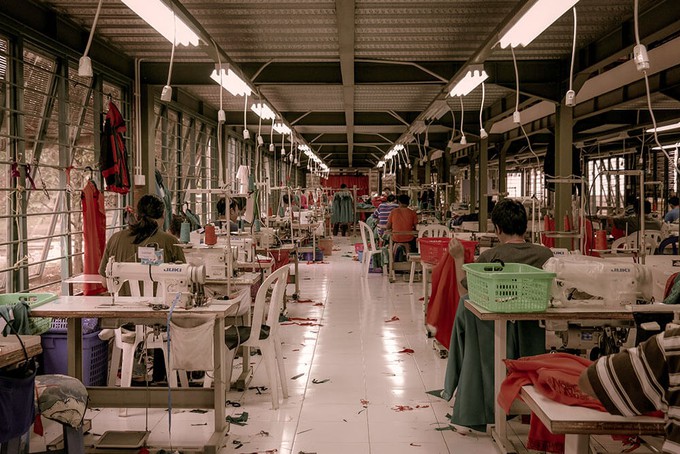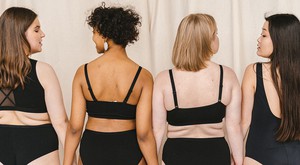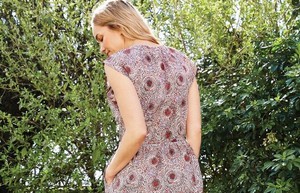- Clothes
- Bags
- Accessories
-
Inspiration
- Shoes
Intersectionality in Fashion: ‘Eco-Friendly’ Is NOT Enough

Why do we need intersectionality in fashion when talking about sustainability and ethical clothes?
If we had to explain it with one image, we’d tell you to picture this:
the “irony” of an eco-friendly, organic cotton t-shirt with a feminist or anti-racist slogan… made by exploited people of colour.
The reality behind the “sustainable” collections by most fast fashion brands

More and more eco-conscious consumers like you are trying to opt for sustainable clothes, and that’s great.
Sadly, fast fashion has been taking advantage of it. How?
Through greenwashing.
These brands create “sustainable” collections where the only difference is changing fabrics.
For example, they swap normal cotton for organic cotton or polyester for recycled polyester.
In many cases, they use unquantifiable terms like ‘green’ or even lie about their sustainable credentials.
There are several problems with this:
- They’re tricking consumers into thinking they’ve made a sustainable and ethical purchase
- They sell these collections at unsustainably low prices (with which real ethical companies can’t compete)
- They hide an unsustainable and unethical supply chain
What do we mean by intersectionality in fashion?
Traditionally, intersectionality is about recognising that categories like race, class, and gender are interconnected when it comes to systems of discrimination and disadvantage.
With intersectionality in fashion, however, we believe there’s another factor to focus on:
taking workers and the social side of things into consideration when talking about sustainability and ethical productions.
Going back to our initial t-shirt, did you know that women of colour make up 80% of the world’s textile workers?
And many of them are trapped in modern slavery conditions. This is because several brands are still outsourcing to factories in developing countries without conducting any background checks.
So, in other words, we need intersectional environmentalism in fashion.

Working towards intersectionality in fashion
Unlike what fast fashion wants you to believe, sustainability is more than using an eco-friendly material.
We need fashion that’s environmentally friendly and kind towards humans.
So, to achieve intersectionality in fashion, we think all brands should strive towards:
- Making the entire supply chain as sustainable as possible
- Guaranteeing fair working conditions
- Being conscious of the impact that clothing production has on local, vulnerable, and marginalised communities
- Embracing diversity, representation, and intersectionality when they market their clothes (but not just to “tick a box”)
Basically, both environmental and social justice should be part of the sustainable and ethical conversation in fashion.
We need intersectional environmentalism that protects both the planet and humans. We can no longer afford to focus on just one or the other (and we never should have).
What YOU can do as a consumer to encourage intersectional fashion
- Educate yourself on greenwashing, and go beyond labels: a ‘green cotton t-shirt’ isn’t as ethical as fast fashion brands claim!
- Look for (and demand) transparency. Choose brands that back up their sustainability claims and tell you who made your clothes, and question them when they don’t
- Still, be realistic: it’s impossible for any brand to do everything perfectly. For example, some small companies produce their clothes ethically and pay fair wages but can only offer a small size selection due to their limited budget. Some others take care of their workers but are criticised for not being vegan. Still, there’s a big difference between a brand trying its best to be both eco-friendly and socially responsible… and a fast fashion company chucking ‘bio’ or ‘green’ on a label!
What else do you think should be prioritised to work towards intersectionality in fashion? Let us know in the comments.
And, if you’ve found this interesting, start receiving our tips and inspiration to make even more sustainable fashion choices.
Share our story
Related articles
Diversity in Fashion: Are Ethical Brands Doing Enough?
Things are getting better, but diversity in fashion is still a work in progress. Here’s how we can all make a difference in the ethical clothing industry.
No-Jargon Difference Between Ethical & Sustainable Fashion
It can be hard to “decipher” this industry with so many buzzwords! So, here’s the actual difference between ethical and sustainable fashion.
Fashion Greenwashing: Don’t Let Unethical Brands Trick You!
Looking for a greenwashing definition? It’s an immoral PR stunt to deceive clueless eco-conscious consumers. Don’t let companies get away with it!
Project Cece is a platform that collects ethical fashion from vetted brands and shops in one place. Browse ethical fashion for women and men and find items that fit your style, budget and values!



